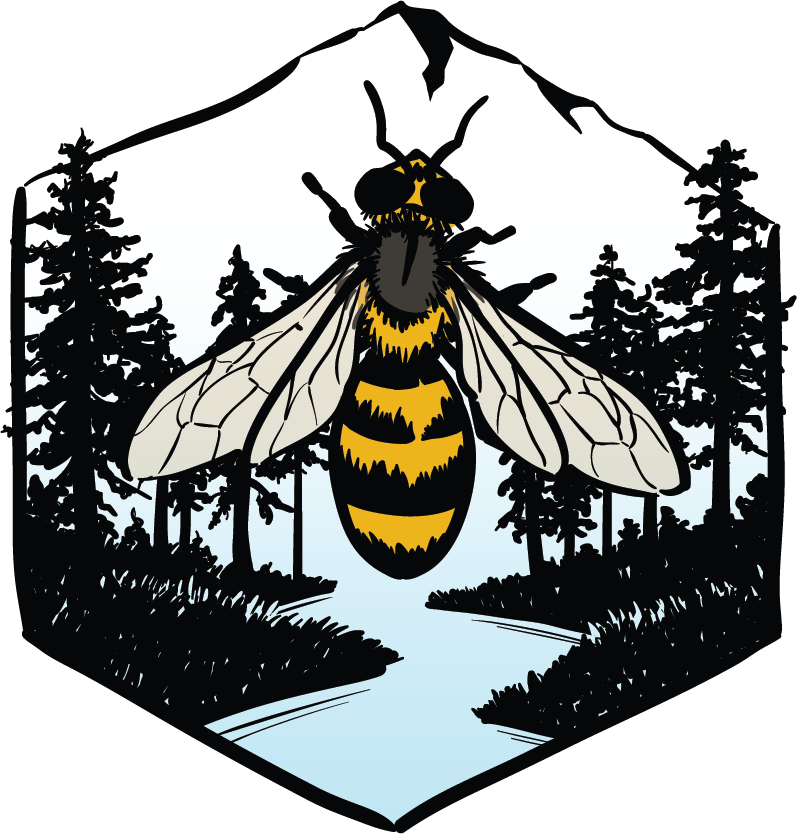Willamette Valley Beekeepers Association – ESTABLISHED in 1967
I wish each and everyone a Merry Christmas and a Wonderful and Happy New Year! I wish you an old-fashioned Christmas; the kind where concerns are simple, feelings sincere, and the greatest gift of all is peace and love.
Have you been out to observe your bees in the last few days? For three or four days, the bees in our area have been flying. It’s been unusually warm for the end of December. I’ve been calling them Christmas bees. Of course, here in the Willamette Valley of Oregon, this warm weather can change overnight. My bees have been cleaning out some honey supers that I put out under the shed.
I had the opportunity to check on the two hives at Mahonia Hall. One hive has crashed and the other one is very strong, perhaps to strong. I plan to get the dead-out going again this spring.
Perhaps this is the time of the year to think about being neighborly and exhibiting some beekeeping etiquette. There has always been an unwritten custom that you shouldn’t put hives next to another beekeeper unless you have a crop pollination contract. That custom seems to be compromised more and more each year. Of course a few hives for home use isn’t going to bother anyone. One of the problems in moving to many hives onto another beekeeper is the loss of honey for that person being moved in on. Second, late season robbing increases considerably. Many hives can be lost to robbing. This can be very discouraging for newer beekeepers. A great deal of their investment is lost.
Being neighborly or conducting business with a good rule of beekeeping conduct, can range from being easy to being very difficult. It depends on both you and your neighbors. Generally it’s easier to be neighborly in a rural area, however not always. There is generally more room in the country. The neighboring family I have now is fantastic. He has even planted his lawn to clover! The neighbor before him was impossible to work with. He did everything possible to put us out of the bee business.
If you are in an urban/suburban area, here are some guidelines to help minimize problems. First, it would be best not to place the hive(s) on a property line if possible. If the hive(s) has to be placed near a property line, one could establish a flight path barrier. This would consist of building a 6 foot tall wall, fence, row of dense vegetation, or a combination thereof between the hive(s) and property line. This barrier in the bees flight path, would force them to fly at least 6 feet above the ground over the property line.
Providing a source of water would be a second thing a beekeeper could do to be neighborly. Provide water before you bring your bees home. If you establish a water source, the bees will locate it and this will become their watering hole. Hopefully they won’t frequent the neighbors swimming pool and hot tub. I have found that adding a little salt to the water is very helpful. The bees enjoy some salt.
Thirdly, attempt to keep gentle bees. If the bees are showing aggressive characteristics without being disturbed and are over defensive, it’s time to requeen.
A fourth consideration, is to avoid working the bees while the neighbor is out in their yard if possible. For example, if they are having a party, reception, or some function, it would be considerate not to work your bees until another time.
Also education goes a long ways. Once people find out the’re not going to be attacked by your honeybees, they are generally accepting of the bees. Honeybees take the blame for what hornets and wasps have done.
May you have a wonderful 2015!
Rich Farrier
